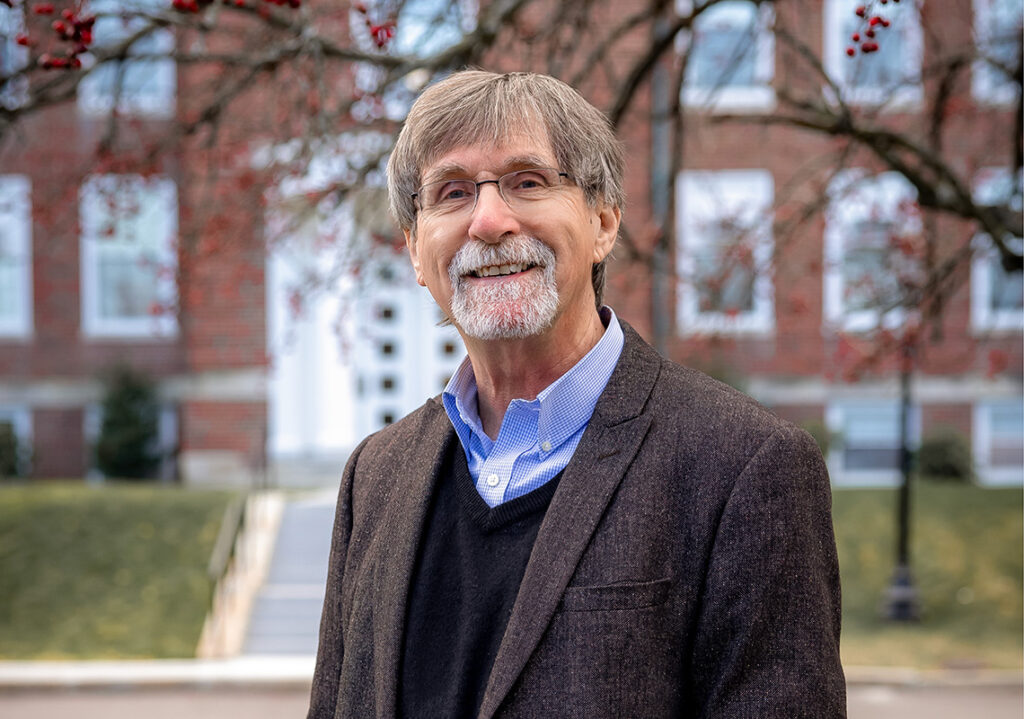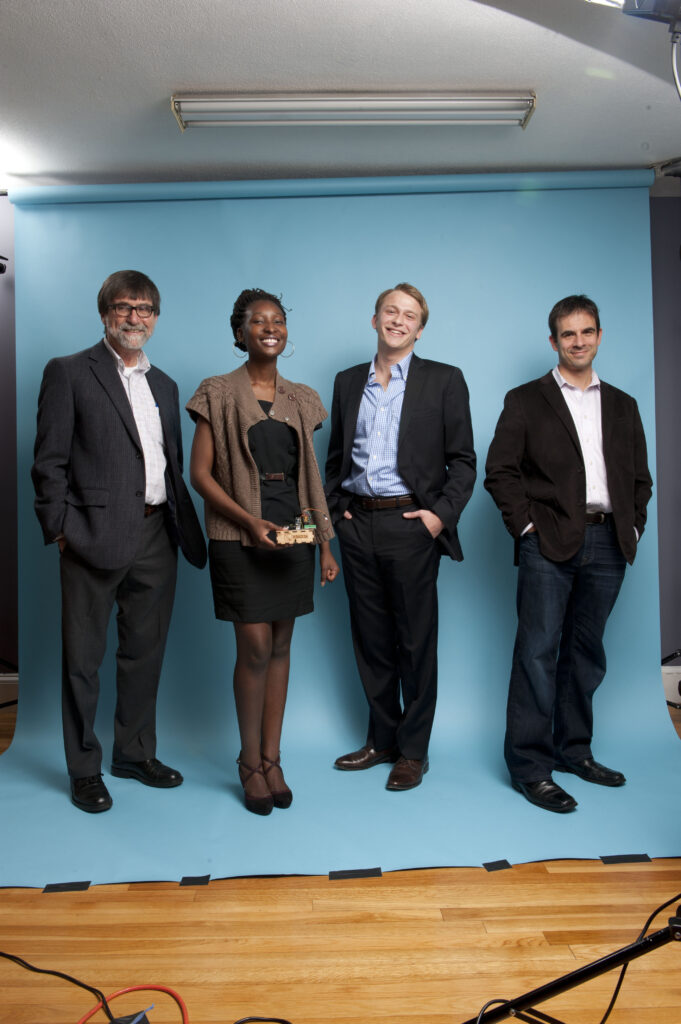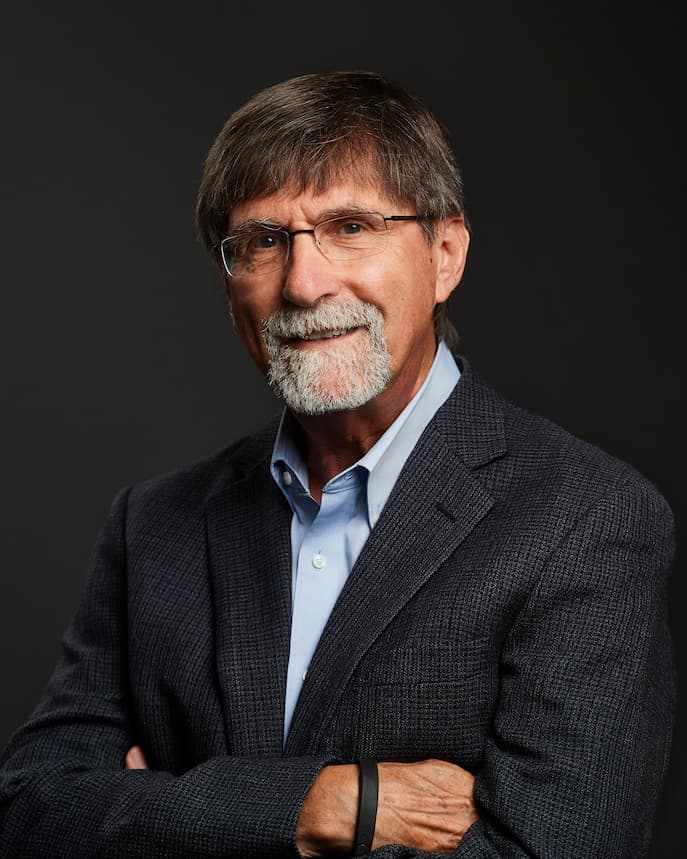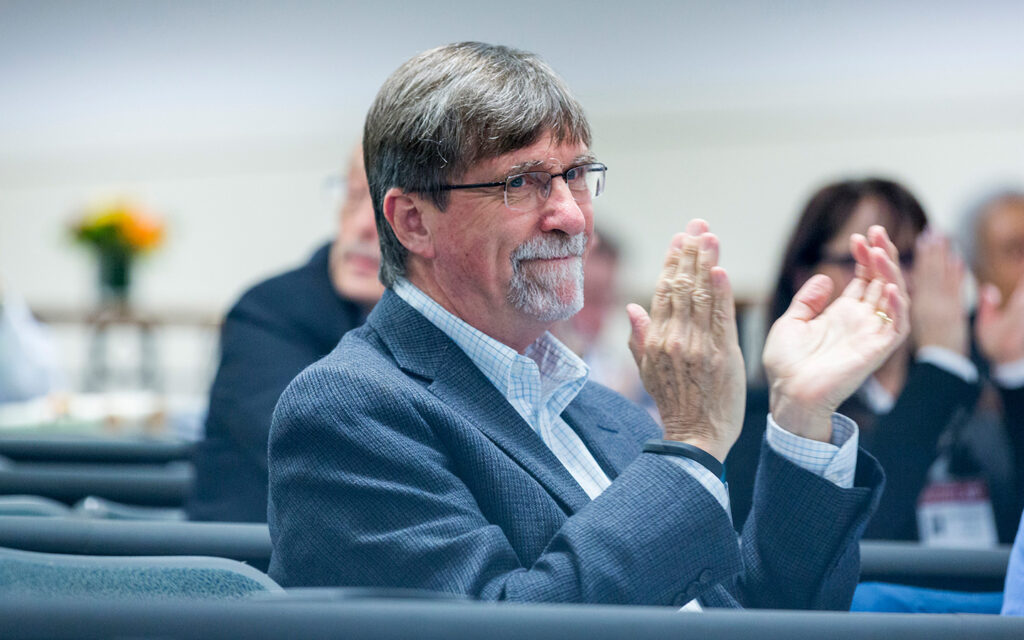BC Law Magazine sat down with Professor Paul Tremblay, a clinical professor and Dean’s Distinguished Scholar here at BC Law. Prior to joining the Law School, Tremblay was a senior attorney at the Legal Aid Foundation of Los Angeles and instructed at UCLA School of Law. He has dedicated much of his scholarship and engagement to matters of professional ethics, transactional practice, and legal services for the poor. Serving on both the Massachusetts Supreme Judicial Court’s Standing Committee on the Rules of Professional Conduct and the Boston Bar Association Ethics Committee, Tremblay is an instrumental participant in developing ethical standards for attorneys across the Commonwealth.
Since 1982, Professor Tremblay has taught a variety of clinical courses in both civil litigation and transactional contexts. In 2008, he founded the Community Enterprise Clinic to represent low- and moderate-income entrepreneurs, small businesses, and nonprofit organizations. Throughout his career, he has received numerous awards for his instruction, including the William Pincus Award (2020), the Outstanding Advocate for Clinical Teachers Award (2004), and the Emil Slizewski Excellence in Teaching Award (2008). He is currently directing the Law School’s Dublin Semester in Practice Program. His career at BC Law is coming to a close this year.
This interview was conducted by Bella Burrell ’25
Bella Burrell: Let’s start at the beginning. Can you talk about your background and your journey to BC Law?
Professor Paul Tremblay: I went to Boston College undergrad and majored in psychology. I’m a first generation in every kind of way. My dad worked at General Electric as a machinist, and all three of my brothers followed him there. My sister worked in retail. I went to college and was not quite sure what I wanted to do. I took two years off after my undergraduate degree and then, kind of on a whim, went to UCLA’s law school. I ended up doing a lot of public interest work there, and eventually—really luckily—got a job right after law school at the Legal Aid Foundation of Los Angeles. There, I worked in South Central LA in a predominantly Black community and did civil litigation. I just loved it; the work was really exciting. The Legal Aid Foundation was a really high-powered organization and it was so exciting to be a part of it.
Both my wife and I are from Massachusetts, so we had this itch to get back here. And here’s the serendipity of it all: I really, really wanted to do the kind of work I was doing at the Legal Aid Foundation, but in Massachusetts. Something opened at the Boston College Legal Assistance Bureau in Waltham, Massachusetts. The letterhead said it was a neighborhood office of Greater Boston’s Legal Services. I didn’t originally want to be part of a clinical program; I was quite sure I wouldn’t be good at it, but I figured that if I came here and got through a couple years of working a clinic, I would make connections here and go downtown to do the work that I really wanted to do. So, I ended up not just doing this for two years, but here we are forty-three years later.
Burrell: What eventually drew your interests toward transactional work, having done civil litigation prior to joining BC Law?
Professor Tremblay: For the last fifteen or sixteen years I’ve done a transactional clinic where we represent small businesses. When I was still doing legal services work, I wrote a bunch about the plight of legal services lawyers and how they dealt with the fact that there was so much need and so few resources in this area. There was a movement in the legal aid community that wanted to focus less on being a savior and more on empowering communities. In 2006 into 2007, a group of students asked me whether the school might create a community economic development clinic, as all of the clinics were litigation-based in one form or another. I just thought that maybe I could move from litigation to transactional work to provide what they were looking for. I knew nothing about transactional clients, I had never represented a business, but I figured that my students learn stuff in a semester and get really good at it. I could probably do that too. So, with a lot of help from those students, and alums, we created the Community Enterprise Clinic in January of 2008, and that’s what I’ve been doing ever since.
Burrell: What kind of work does the Community Enterprise Clinic do? What kinds of skills do students learn in with the clinic?
Professor Tremblay: The idea is that we are creating economic opportunity. Most of our clients are people of color, and all of our clients could not possibly afford private lawyers to do their business.
Typically, there are two most common scenarios. Option one is where someone comes in with a for-profit business idea. They’re trying to figure out whether they can just run the business on their own, but, of course, then there are personal liability issues. We basically advise the client about whether they want to create a formal business entity and then we help them complete all the documents to get established. Option two is where someone comes in and wants to start a nonprofit business. It’s the same kind of analysis for our students. We advise them about whether they should start a new nonprofit or work with an existing one, whether they should start an entity or not, and then help them complete any necessary paperwork, including the critical application to the IRS for tax-exempt status.
Burrell: In your experience, what makes a great clinic student?
Professor Tremblay: Obviously, having students who are smart and good researchers and good analysts is great. But the best clinic students tend to have two things. One is having compassion and interpersonal skills because lawyering is an interpersonal profession and a caring profession. The other one is equally important and almost impossible to replicate outside of the clinic environment, but students need to be able to deal with ambiguity and uncertainty. Legal stories don’t walk in well-framed or defined. Things often start messy, and you’re not always sure what’s true or what you need to do next, and a great clinic student has to be comfortable with not always knowing.
Burrell: When you reflect on your years directing clinics, are there any anecdotal moments that jump out at you?
Professor Tremblay: On the litigation side, there were, of course, common things that would make us smile. The opposing lawyers almost never liked us because we were really good and we were free. Conservative judges also didn’t like us because the students were really, really smart and we could pull out laws that the judge might not have thought of. The students have always prepared really well and were all-around really good. So, that was a big thematic memory, just remembering how we dealt with being in enemy territory all the time. Of course, I remember all the big litigation victories too: winning jury trials that were great cases but hard to prove, for example.
On the transactional side, one of the coolest things we ever did was help this sort of serial entrepreneur who was a Boston College undergrad. He had a bunch of different ideas and we had a couple of things that we worked on with him. Eventually, I think in 2012, he had an idea for delivering alcohol the way that you would Uber Eats takeout food. He originally called it Keg Me, and one of our best students met with him about it. We gave him advice and eventually he launched this company called Drizzly. It got really big and even had National Football League ads on it at one point, and the first germ from all of that started in our clinic.
The most notable aspect of the CEC for me, though, was our sustained relationship with Smarter in the City, a high-tech incubator for entrepreneurs of color in Dudley Square (now Nubian Square) in Roxbury begun in 2014. Our students served as the legal counsel for dozens of its emerging businesses, and that role continues now with its successor organization, Entrepreneurship for All.
Burrell: What have been some of the biggest notable shifts in the clinical programs during your years with BC Law?
Professor Tremblay: When I started, the Law School basically had only one civil clinic and one criminal defense clinic. The civil clinic office was in Waltham, and there were four full-time lawyers and one full-time social worker working there. We did not get hired by doing job talks or meeting the faculty. I was hired by a student board of directors. The first time I ever spoke to the dean was when I got a phone call congratulating me on my offer. So, we weren’t really much a part of the faculty when I started, but our faculty status has evolved tremendously while I’ve been here. The clinics have also shifted from being a community-based storefront in Waltham to being at the law school [in the Center for Experiential Learning]. We now offer more than ten clinics that students can choose from. It’s changed dramatically since I’ve been here. Moving to the law school ended up, to my surprise frankly, as a really great development.
Burrell: Are there areas of the clinical programs at BC Law for which you would like to see further development?
Professor Tremblay: Yes, there are three things to mention here. First, I just want to highlight that when I started, there were four full-time lawyers and a full-time social worker. I think at the time we were one of the few clinics in the country that had a full-time social worker on our staff. Lynn Barenberg joined the civil clinic as a social worker and worked with us for more than twenty years. When she retired, we hired Claire Donahue to replace her, and we turned the position into a full-time faculty position because, as we all agreed, Lynn was doing as much teaching as any of us and she really deserved to have faculty status. While Lynn didn’t reap the benefits of that development, Claire is getting that deserved recognition now. The work she does is incredibly important because lawyering is a helping, interpersonal profession, and having people who can help us understand the interpersonal dynamics of what’s going on is so important.
Second, we already cover so many topics in our clinics, but it would be nice to return to having a general civil litigation clinic. It’d be nice for students to get experience being generalists. Third, we really should develop an Intellectual Property clinic in the coming years. There’s strong support among the non-clinician part of the faculty for an IP clinic where students could do copyright, trademark, and—if they got the right supervisor—even patent work.
Burrell: As we continue to grow, how can we make the types of legal services offered by clinics more accessible to people who need them?
Professor Tremblay: That’s such an important question. One of the interesting things in this area of access to justice is that technology is helping. Clients, regardless of their situation, could benefit from really good, user-friendly apps that could walk you through the basics so that you don’t lose by default or because of missing deadlines. Short of that, it would be great to develop systems where clients can navigate the world themselves. It’s the best we can do absent more aggressive funding for legal aid services and programs.
Burrell: You’ve received a multitude of teaching awards over the course of your career at BC Law. How would you characterize your own teaching style?
Professor Tremblay: I think my teaching is pretty non-directive. I hardly ever lecture. Even when I am teaching for the clinic bootcamps, I really don’t lecture. I don’t tell students how things work. Instead, I ask the questions a novice or a client would ask—and I know the answers to all of those questions—and have the students tell me the answer. If they get it wrong, I’ll let them know that that isn’t the way it works, but I appreciate the guess. In Professional Responsibility, a larger classroom course, I also really don’t lecture much at all. I have some PowerPoints and questions, and I do have students on call each day.
The idea is to make the students feel like they’re developing confidence and teach them that it is okay to be wrong. I think that’s probably something that comes through both in my clinic direction and in classroom teaching. I typically understand and empathize with students who get answers wrong. Usually, students get things wrong because the law doesn’t always work the way you think it should work.
Burrell: What continues to drive you as an instructor?
Professor Tremblay: I really love puzzles. This may account for my pivot to go from a litigation career to transactional clinic directing. There is so much stuff I don’t know yet, and I am a really, really curious person. I like to try to make sense of things and help others make sense of things. I think that’s what keeps me going. I’ve never, ever been bored with any of the work that I do. Things are always changing and so I’m still trying to make sense of it all.
Burrell: You served as the Associate Dean for Experiential Learning from 2012 to 2015. Can you tell the readers how this opportunity presented itself and what some of your high-level takeaways were from serving in that role?
Professor Tremblay: At the time we did not have a director for experiential learning or for clinics. Everyone agreed that we needed that. I was the most experienced person at the time, and so the dean asked me to do it. It was a really hard job because we hadn’t had this role before. At the same time, the dean made the decision to move our office from Waltham and bring us to the Newton campus. It was challenging to oversee that transition, but as I mentioned it worked overall. We ended up doing a whole bunch of great stuff, including increasing the externship programming to include new options. I am glad I did it because a lot of good things happened for the program while I was in the role.
Burrell: You’ve also authored several textbooks during your career. What are your takeaways from those experiences?
Professor Tremblay: The two books I’ve authored are entirely different in terms of how I became involved. Both of them are really, really exciting in terms of my career. First, the Lawyers as Counselors book started as a legal interviewing and counseling book produced by Binder, Price, and Bergman at UCLA. This was the book that everyone used. In 2003 or 2004, I got a call from David Binder and Paul Bergman saying that they were looking to add a new author and that they liked my work. It was immensely flattering because this was like the Bible for the clinical world, and they eventually asked me to join them.
The second book [Introduction to Transactional Lawyering Practice] is more of my own creation. When I started doing transactional work, there wasn’t a book that squarely fit the needs of the students because everything was litigation-based. I figured that I knew a lot about interviewing and counseling and I could learn a lot about some of the other things the book needed. I eventually submitted a book proposal but realized that I would be way in over my head doing this myself. I asked a BC alum who was teaching at Michigan, Alicia Alvarez, whom I knew really well, if she would join me. She said yes, and so we wrote it together from scratch. I think to this day it is one of the few, maybe the only, book of its kind. It’s used now in almost every law school in the country. It truly became the book I wished I had when I began instructing in the transactional space.
Burrell: You’ve also spent a considerable amount of time on advancing the rules of professional responsibility and writing about ethics during your career. You’ve been on both the BBA Ethics Committee and the Supreme Judicial Court’s Standing Committee for the Rules of Professional Conduct. What got you interested in this work?
Professor Tremblay: Back when I was working out of the office in Waltham, there were all of these issues that I was bumping into and couldn’t find good answers to, so I started writing about those issues. The first bucket of my work was about representing and working with questionably competent clients under Rule 1.14 [the ethics rule about properly representing diminished capacity clients]. The article got a lot of attention because many other people were struggling with this issue. The dean at the time, Dick Huber, told me that he needed additional professors for Professional Responsibility and asked if I would teach it. So I started teaching it, and I kept writing about it.
Eventually, there was an opening in the Boston Bar Association Ethics Committee and I was asked if I was interested in joining. Once a month we’d meet downtown in Boston at the BBA—in its beautiful building—with all these super smart people. I got to partake in fascinating conversations about ethics with them and become more and more interested. Eventually, I chaired that committee and got to work with the Board of Bar Overseers on writing a treatise regarding professional and ethical standards when representing lawyers involved in disciplinary matters.
During the middle of writing that treatise, I was invited to be part of the SJC Committee, which felt even more high-powered. These are the best and brightest of folks. So, through all that, I just became part of the ethics community and I continued to write about it because it interested me.
Burrell: Returning to your work at BC Law, what are some notable changes in our community that you’ve observed over your career?
Professor Tremblay: Some things haven’t changed. It’s remarkable given that we’ve hired so many new people and have had so many students come in, but we are still a really collegial and warm place to work. For students, relative to other schools, I really do think that we are caring and have that sense of community. We’ve kept that over the years. People are just supportive of one another.
The part that has changed institutionally is that we have so much more intellectual firepower in our faculty and our visitors. The breadth of people who come week after week to be a part of programs and give talks is incredible. These are superstars. That all probably helps account for our national prominence. We have this much more intellectual and open activity going on at BC Law right now.
Burrell: Looking back and reflecting on your career, how would you define your own legacy?
Professor Tremblay: That’s probably the hardest question to answer. I think I’m proud that I came to the school at a time where clinics were on the margins and now they’ve come to be a central part of the school. My legacy is that I got to be a part of that.
Top photograph by Caitlin Cunningham, Boston College





